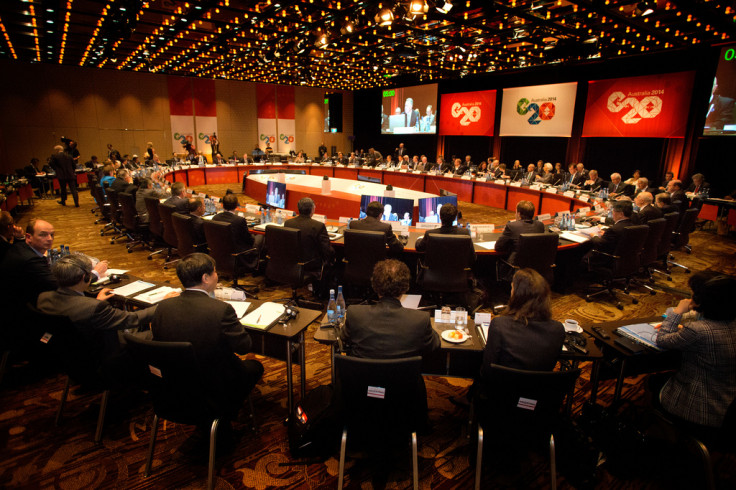G20 Expects to Add $2tn and Millions of Jobs to Global Economy

The world's prominent economies are targeting an increase in the global growth rate by at least 2 percentage points over the next five years and create tens of millions of job across the globe.
At a meeting in Sydney, the G20 finance ministers and central bank governors announced their target to add $2tn (£1.2tn, €1.5tn) to the global economy over the period in line with the recent recovery after the financial crisis. The G20 group represents about 85% of the global economy.
The group noted that growth strengthened in the US, the UK and Japan alongside continued solid growth in China and many emerging market economies and the resumption of growth in the euro area.
We will develop ambitious but realistic policies with the aim to lift our collective GDP by more than 2 per cent above the trajectory implied by current policies over the coming 5 years. This is over US$2tn more in real terms and will lead to significant additional jobs.
Nevertheless, a strong, sustainable and balanced growth in the global economy is still far away, according to a communiqué. The current economic growth is still below the rates needed to ensure required employment levels, and the recent volatility in financial markets, high levels of public debt and continuing global imbalances are threatening sustainable growth.
"We commit to developing new measures, in the context of maintaining fiscal sustainability and financial sector stability, to significantly raise global growth," the communiqué said.
"We will develop ambitious but realistic policies with the aim to lift our collective GDP by more than 2 per cent above the trajectory implied by current policies over the coming 5 years. This is over US$2tn more in real terms and will lead to significant additional jobs."
In order to achieve the growth rate, the group plans to undertake concrete action including an increase in investment, trade enhancement and promotion of competition in addition to other macro-economic policies.
Small and Medium Enterprises
The G20 highlighted the importance of small and medium enterprises in achieving sustainable growth.
"This is crucial for the global economy's transition to stronger growth in the short and medium term," the group said.
It will undertake reforms in the sector to remove constraints on private investment by "establishing sound and predictable policy and regulatory frameworks and emphasising the role of market incentives and disciplines".
Tax Reforms
The group expects to begin to exchange information automatically on tax matters among its members by the end of 2015 amid rising complaints of tax dodging by multinational companies.
The group said it is committed to Base Erosion and Profit Shifting (BEPS) based on sound tax policy principles, allowing for taxing companies at the place where economic activities deriving profits are performed and where value is created.
"We endorse the Common Reporting Standard for automatic exchange of tax information on a reciprocal basis and will work with all relevant parties, including our financial institutions, to detail our implementation plan at our September meeting," the group said.
The reforms come amid widespread public and political opposition in the UK and the US to multinational firms which dodge taxes making use of lower taxation regimes. Firms such as Starbucks, Google, Apple and Amazon faced severe criticism over their tax strategies.
© Copyright IBTimes 2025. All rights reserved.






















